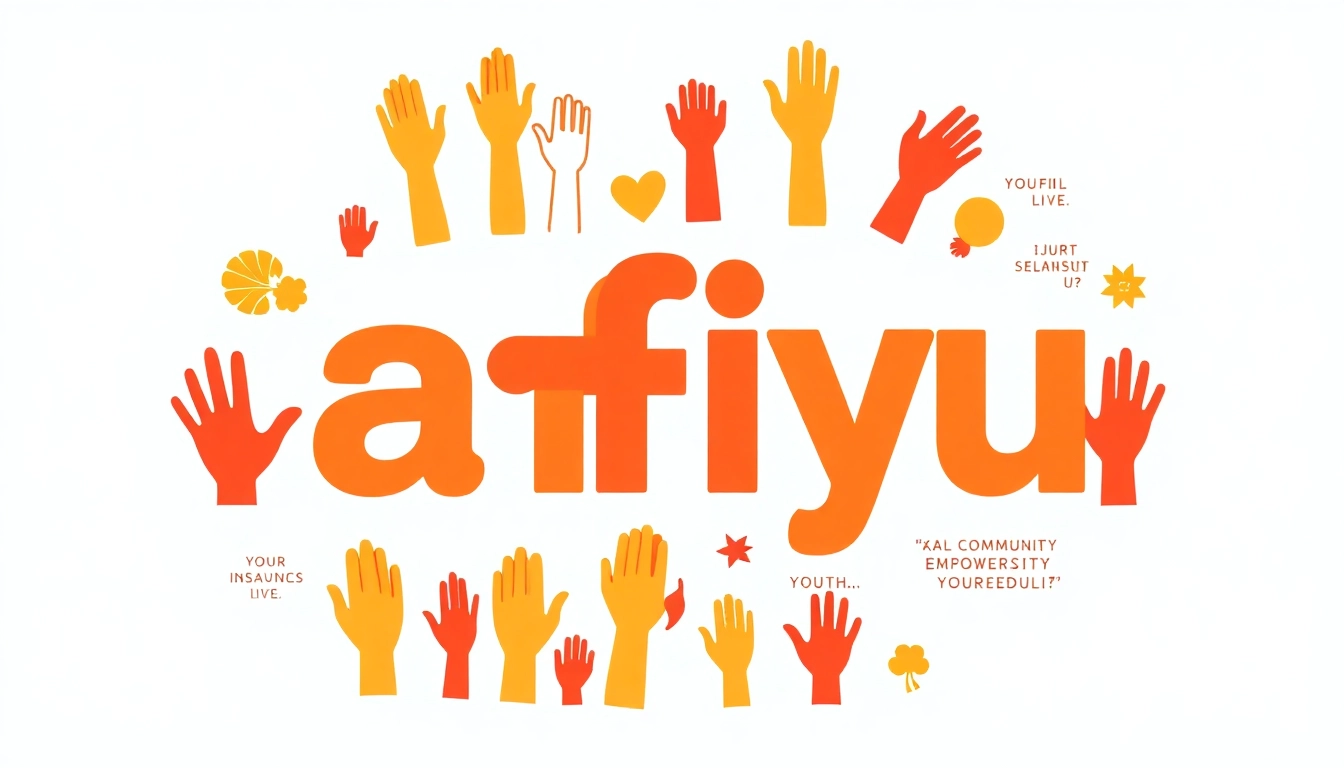
The Meaning of Afiyu: Cultural Insights
Understanding the Term Afiyu
The term afiyu has roots in Jamaican Patois, where it translates to “it is yours.” This simple phrase embodies a profound philosophy of ownership, belonging, and communal responsibility that resonates deeply within African and Caribbean cultures. Afiyu symbolizes not just personal ownership but a collective sense of accountability towards one another, especially among youth. This understanding sets the stage for exploring how afiyu can serve as a foundation for community building and youth empowerment.
African Heritage and Community Relations
To fully grasp the essence of afiyu, one must appreciate its ties to African heritage. The African diaspora carries historical burdens, including colonization and systemic inequities, yet it has also fostered resilience and solidarity among communities. Afiyu, as a cultural artifact, serves to bridge the historical context with contemporary societal needs, reinforcing community ties. It illustrates how individuals can transform the notion of ownership into embracing their cultural heritage, leading to a renewed sense of identity and connection.
How Afiyu Shapes Community Identity
Afiyu is not merely a term; it is a catalyst for identity formation within communities. By adopting afiyu as a guiding principle, youth can learn to appreciate their heritage while fostering a sense of pride in their identities. This cultural perspective encourages individuals to take active roles in their communities, driving initiatives that benefit all. Such ownership leads to positive changes, including improved educational outcomes and increased civic engagement among the youth.
Afiyu in Action: Programs and Initiatives
Success Stories of Afiyu Mentorship
Numerous organizations leverage the concept of afiyu to deliver mentorship programs that empower youth. These programs often unite mentors from the community with young individuals who may lack guidance. For instance, initiatives that focus on leadership development allow mentors to pass on valuable life skills while instilling the principles of afiyu. These success stories illustrate how personal mentorship can lead to profound life changes, driving young people towards academic success and responsible citizenship.
Community Organizations Leveraging Afiyu
A variety of community organizations have emerged that focus on afiyu-based methodologies, targeting the unique challenges faced by young people in urban settings. Programs that are spearheaded by local leaders often emphasize cultural education, professional guidance, and emotional support. The impact of these organizations is significant, as they create platforms where youth can share their stories, struggles, and achievements, reinforcing the notion of interpersonal connectivity central to afiyu.
Building Life Skills through Afiyu-Based Programs
Afiyu-centered initiatives commonly focus on equipping youth with essential life skills. Programs that promote financial literacy, vocational training, and emotional intelligence are vital in this regard. For example, workshops teaching budgeting and personal finance enable young people to take ownership of their economic futures. When youth become adept in these areas, they embody the spirit of afiyu, demonstrating personal accountability and resilience.
Challenges Faced by Communities
Barriers to Youth Engagement
Despite the empowering philosophy of afiyu, youth engagement remains a significant challenge. Factors such as socioeconomic disparities, lack of access to resources, and systemic inequalities often limit young people’s participation in community initiatives. Furthermore, feelings of disenfranchisement can dissuade youth from embracing their cultural identities. Understanding these barriers is essential for developing strategies to foster greater engagement.
Addressing Economic Disparities
Economic disparities can thwart the principles of afiyu, making it essential to address these challenges head-on. Communities that actively seek to bridge economic gaps can create more equitable opportunities for youth. Pioneering initiatives that provide scholarships, internships, and job placement services are instrumental in ensuring that all youth can thrive, irrespective of their economic circumstances. Through collaboration with local businesses and government programs, communities can begin to dismantle these barriers.
Common Misconceptions about Afiyu
There are common misconceptions surrounding afiyu, particularly regarding its meaning and implications. Some may perceive it merely as a slogan or a cultural relic without understanding its profound impact on community cohesion and youth empowerment. Educating both community members and external stakeholders about the true essence of afiyu is crucial. This can be addressed through workshops, discussions, and media campaigns that spotlight the importance of communal ownership and empowerment.
Implementing Afiyu Principles in Local Initiatives
Strategies for Grassroots Engagement
Implementing afiyu principles effectively requires grassroots strategies that activate community participation. Initiatives that promote volunteerism and community service are excellent starting points, as they foster a sense of belonging and collective responsibility. Additionally, social media campaigns that highlight stories of local heroes embodying afiyu can inspire broader engagement. Emphasis should be placed on creating platforms for dialogue where youth can express their needs and contribute to decision-making processes.
Role of Leaders in Promoting Afiyu
Leadership plays a transformative role in promoting afiyu principles. Local leaders and influencers can catalyze movements by modeling afiyu values through their actions. They can create mentorship opportunities, advocate for policy changes, and establish partnerships with other organizations. By aligning with the afiyu framework, these leaders can inspire others to recognize their potential and take meaningful action within their communities.
How to Measure Impact Using Afiyu Frameworks
Measuring the impact of afiyu-based initiatives is critical to understanding their efficacy. Communities can employ various metrics, including youth participation rates, educational attainment, and community satisfaction levels. Surveys and focus groups can also gather qualitative data on how initiatives based on afiyu have influenced personal and collective development. Such evaluations can help refine strategies and showcase the importance of cultural ownership in community upliftment.
The Future of Afiyu in Community Development
Innovative Approaches to Enhance Afiyu
Embracing innovative approaches can significantly enhance the impact of afiyu in modern community development. Technology offers new avenues for connecting youth to resources and mentorship. Digital platforms can facilitate remote mentorship, online skill-building workshops, and collaborative storytelling projects that amplify youth voices. By leveraging these advancements, communities can ensure that the principles of afiyu adapt and thrive in a rapidly changing world.
Collaborations that Strengthen Afiyu Efforts
Collaborative efforts across organizations can greatly enhance the applications of afiyu. When businesses, educational institutions, and nonprofit organizations work together, they can pool resources and broaden outreach. Creating mentorship networks that draw from various sectors allows for a richer sharing of knowledge, skills, and experiences. These partnerships can propel afiyu initiatives towards sustainable growth and deeper community impact.
Vision for Afiyu in the Next Decade
Looking to the future, the vision for afiyu encompasses a more inclusive and engaged community landscape. The continuous evolution of afiyu principles will likely lead to more tailored programs that meet the needs of diverse groups. Promoting mental well-being, confronting systemic inequalities, and embracing technology to facilitate growth are all crucial components. By remaining vigilant and adaptable, communities can harness the full potential of afiyu for youth empowerment and enriched communal relationships over the next decade.







